|
Reprinted from |
|
by John Geary
"Team Pride" began operations in January 2007. It seeks to bring the same skills, philosophies and opportunities available through ATA to low-income families whose children may be at risk of adopting criminal behaviour. The Beginnings
Schreiber investigated obtaining grants to help these youngsters, but getting grants for a for-profit school is difficult. "That got me thinking it would be helpful to have a non-profit organization to act as an umbrella to obtain funding for ATA instructors nationwide," he says.
Before developing anything concrete, Schreiber attended law school at Harvard. To meet one of his degree requirements, he produced a major research paper, essentially a written proposal for developing Team Pride. "I kept in mind instructors who were insterested in teaching kids they thought would benefit from the Karate for Kids program but who could not afford it," he says. Those instructors included Senior Master Daniel Thor, who shared Schreiber's belief in making ATA programs available to younger, low-income kids. Thor spoke with Senior Master William Babin, and together, the men set the wheels in motion.
The Offerings "We expect the partner school to donate 20 percent of the program cost," he continues, "and the instructor is reimbursed for 80 percent. That comes from a combination of whatever a family is able to pay and Team Pride vouchers." Funds for the vouchers come through grants and fundraisers. As of May 2007, four schools have enrolled eligible students, including one in Martinez, Ca., at Schreiber's ATA Black Belt Academy, and one in Mesa, Ariz., where Babin runs a Team Pride program in a local elementary school. Schreiber says so far, a total of 9 schools have signed up to partner in the venture. The Approaches The other method involves bringing eligible youngsters into established schools, which is less labor-intensive, but reachers fewer kids. Team Pride developed a recruitment package to help ATA schools connect with community leaders who can then help identify at-risk kids. The Benefits
Thor agrees. "Many people will benefit from this," he says, "but in particular, a whole segment of our society that has a lot of things going against them, can benefit." The program also provides kids with something they can use as adults: vocational options. "The idea is to give kids graduating from the program some career opportunities," Schreiber says. "Team Pride will fund them to get started teaching in their own communities that don't have access to traditional martial arts schools." It sends the message that you don't have to go to college to succeed, career-wise or academically, they say. Even if you are not academically inclined, you may have innate people skills useful in establishing a successful occupation. "You can succeed in this type of program with the skills you learn--not just Taekwondo skills, but also teaching skills an dleadership skills--and you can actually develolp a career in Taekwondo," Thor says.As the program becomes more established, Schreiber hopes to introduce another phase: working with the court systems.
Schreiber hopes to have a pilot program for that phase set up in his school within a year. The Partnership "We thought at some point about having Team Pride work with all styles of martial arts, not just the ATA," Schreiber says, "but we decided the ATA has a good structure, and a high degree of professionalism, and quality instructors." The program, in turn, benefits the ATA by raising its profile in every community where there is an ATA school. "This really opens doors," Babin says. "I'm talking to the school district now, after years of not having my phone calls returned." It does much more than just open doors, however. "Everything you give comes back to you," Babin says. "This is our true calling, as teachers, as educators--we need to reach everybody who needs it, not just those who can pay for it." Ultimately, Schreiber would love to see this become a nationwide program, in schools everywhere. Although that is a huge task, he does not feel overwhelmed by the project's demands. "The only thing keeping us from advancing this project faster is the fact many of us also run our own schools and have additional jobs," he says. "But I never feel there is too much to be done." ATA John Geary is a Vancouver, B.C.-based freelance journalist who has trained in Tai Chi Chuan and karate, and has written about the martial arts throughout his career. |


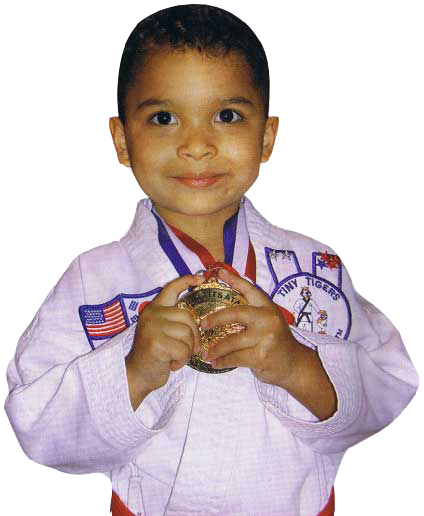 Touching the community and teaching life skills to both youngsters and adults are long-standing goals of the ATA. Now a group of ATA leaders has taken those goals a step further, finding a way to share Songahm Taekwondo with community members who may not have been able to access ATA programs otherwise.
Touching the community and teaching life skills to both youngsters and adults are long-standing goals of the ATA. Now a group of ATA leaders has taken those goals a step further, finding a way to share Songahm Taekwondo with community members who may not have been able to access ATA programs otherwise.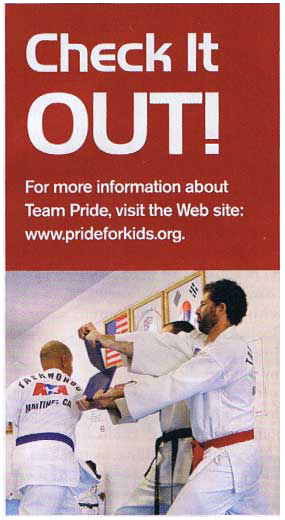 An ambitious project, Team Pride represents the culmination of several years of planning and work. Schreiber first thought of the idea 10 years ago while running a school in Connecticut. The school was located close to both an affluent suburb and a low-income area, and while there, he saw a number of youngsters who could benefit from Taekwondo but could not afford to pay for it.
An ambitious project, Team Pride represents the culmination of several years of planning and work. Schreiber first thought of the idea 10 years ago while running a school in Connecticut. The school was located close to both an affluent suburb and a low-income area, and while there, he saw a number of youngsters who could benefit from Taekwondo but could not afford to pay for it.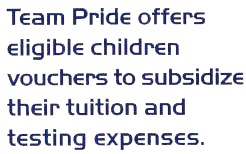
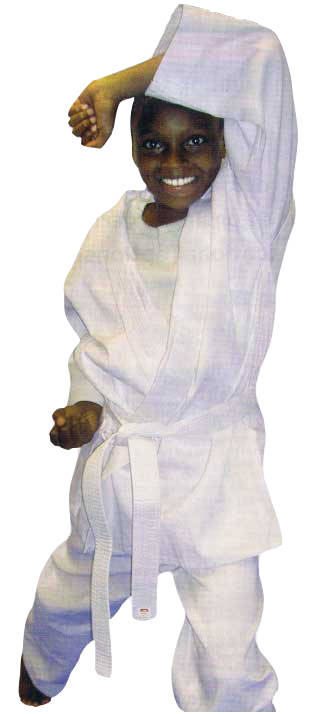 It took three years to establish a framework and another couple of years to develop relationships with instructors who would participate in the program.
It took three years to establish a framework and another couple of years to develop relationships with instructors who would participate in the program.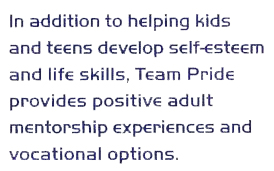 "We know this segment of the population has a need for the life skills taught by the ATA," Babin says. "The ATA has a great reputation for teaching those skills...we change people's lives."
"We know this segment of the population has a need for the life skills taught by the ATA," Babin says. "The ATA has a great reputation for teaching those skills...we change people's lives."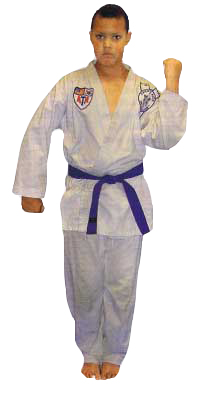 "The idea is to help judges, social workers and probation officers recognize the value of Karate for Kids, so that as a condition of probation or as part of a treatment program, the courts can refer them to our partner schools, which would then help the kids meet the goals the courts have set for them."
"The idea is to help judges, social workers and probation officers recognize the value of Karate for Kids, so that as a condition of probation or as part of a treatment program, the courts can refer them to our partner schools, which would then help the kids meet the goals the courts have set for them."